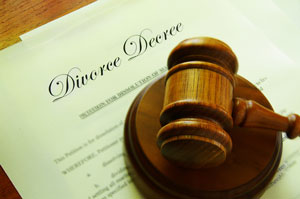 Retirement Assets in the Event of a Divorce
Retirement Assets in the Event of a Divorce
Federal law requires that participants in employer-sponsored retirement plans designate their spouse as their beneficiary unless the spouse waives this right in writing. Assuming that you and your spouse adhered to this practice, a document known as a Qualified Domestic Relations Order (QDRO), which is part of a divorce settlement, specifies how retirement assets are divided.
A QDRO specifies the amount or portion of a plan participant’s benefits that are paid to a spouse, former spouse, child, or other party. A QDRO typically governs assets within a retirement plan such as a pension, profit-sharing plan, or a tax-sheltered annuity. Benefits paid to a former spouse typically are considered income for tax purposes. If you contributed to your retirement plan, a prorated share of your investment is used to determine the taxable amount.
Former spouses on the receiving end of a lump-sum distribution mandated by a QDRO may be able to roll over the money tax free to a traditional individual retirement account or to another qualified retirement plan. Following such a transfer, assets within the plan are subject to rules that would normally apply to the retirement plan. If you transfer assets within a traditional IRA to your spouse as part of a divorce decree, the transfer is not considered taxable and the assets are treated as your former spouse’s IRA.
Procedural Issues
QDROs are governed by rules established by the U.S. Department of Labor. In most instances, a judge must formally issue a judgment or approve a settlement agreement before it is considered a QDRO. The fact that you and your soon-to-be-former spouse have signed an agreement is not adequate for a QDRO to take effect. Also, following an order issued by a judge, the administrator of the retirement plan affected by the QDRO must determine whether the court order qualifies as a QDRO according to the rules of the labor department.
Note that retirement assets are part of a broader financial picture that may include your home, taxable investments, personal property, and other assets. It is not mandated that your spouse receive a portion of your retirement assets in the event of a divorce. You and your spouse may negotiate another type of arrangement that permits you to retain your retirement assets while granting other assets to your spouse. In addition, a prenuptial agreement, depending on its provisions, could potentially limit your spouse’s rights to your assets.
You may want to consult a divorce lawyer and your financial advisor to determine whether federal laws relating to retirement accounts apply to your situation.
Because of the possibility of human or mechanical error by Wealth Management Systems Inc. or its sources, neither Wealth Management Systems Inc. nor its sources guarantees the accuracy, adequacy, completeness or availability of any information and is not responsible for any errors or omissions or for the results obtained from the use of such information. In no event shall Wealth Management Systems Inc. be liable for any indirect, special or consequential damages in connection with subscriber’s or others’ use of the content.
© 2015 Wealth Management Systems Inc. All rights reserved.

 Retirement Assets in the Event of a Divorce
Retirement Assets in the Event of a Divorce







